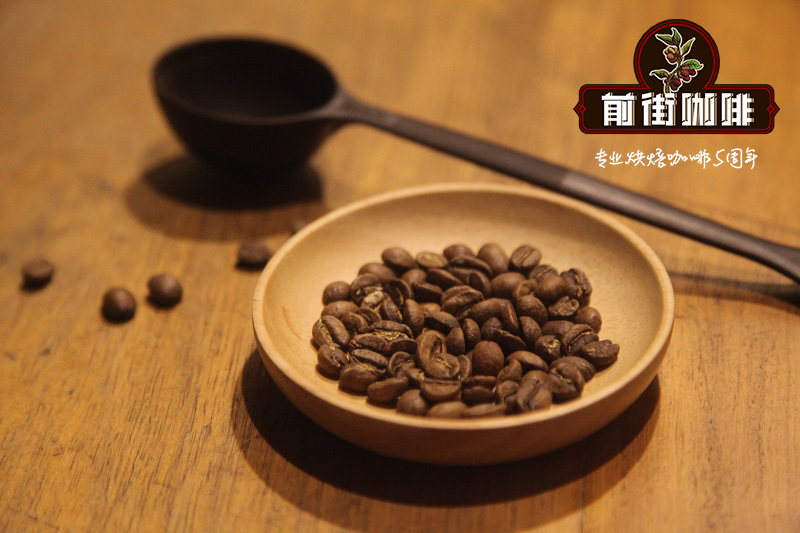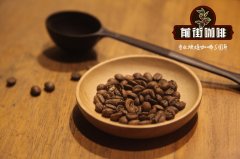Bolivian Coffee Bean Type Arabica Bolivian Coffee Flavor Characteristics

Professional coffee knowledge exchange more coffee bean information please follow the coffee workshop (Wechat official account cafe_style)
Front Street-introduction to Bolivian Coffee
Bolivia is famous for producing high-quality coffee and, like Brazil, has good conditions for coffee cultivation and production. Bolivian raw beans are large and uniform in size, and the green ones are high-quality raw beans.
Bolivia's Karanawi has a bright sour taste like lemon and citrus aromas, as well as a hint of chocolate. Bolivian Karanawi coffee has a refreshing and pleasant sour taste, but its sour taste is not particularly prominent and blends well with other flavors. It is characterized by a lingering aftertaste of dry taste.
Bolivia not only has a unique growing environment, but also has an excellent variety of coffee-Typica. In the past two hundred years, the main variety of coffee in Yanggas area is the ancient Tibica. Tibica coffee has a balanced and soft flavor, with lively aroma and rich sour taste. Unfortunately, the low production of Tibika and poor disease resistance have led to low coffee production in Bolivia. There are even fewer opportunities to taste Bolivian coffee.
Bolivian coffee is mainly grown in the Yungas region northeast of La Paz. It borders the Amazon basin and is about 1500-2500 meters above sea level with an average annual temperature of about 10-15 ℃. Therefore, it ensures the suitable temperature for the growth of coffee and protects the coffee plant from frost. In addition, the Bolivian coffee growing area has a distinct dry and wet season and fertile soil, which is a paradise for the development of boutique coffee. Bolivian coffee is usually picked by hand, mostly washed and processed.
So in order to increase coffee production, Bolivia, like other Central American countries, began to experiment with growing Kaddura and Catuai. Kaddura variety has high yield, high quality, rich sour taste and resistance to leaf rust. Kaduai variety has high yield, strong environmental adaptability and tolerance to diseases and insect pests. Planting these two varieties is expected to increase the yield as much as possible while ensuring the flavor quality.
The overall taste of Bolivian coffee is rich and balanced, the aroma is rich and unique, similar to the mixture of flower and fruit aroma, impressive. The perennial low temperature environment makes the coffee fruit grow slowly, compact enough, the aroma is also charming, the floral aroma is obviously medium and low acidity, but the feeling is not monotonous, on the contrary, it appears soft and fresh, with the sour taste of citrus fruit.
Knowledge: Bolivia is a landlocked country, about 1/3 of the territory is the Andes, rugged terrain, high altitude.
In short: Qianjie is a coffee research hall, happy to share the knowledge about coffee with you, we share unreservedly just to make more friends fall in love with coffee, and there will be three low-discount coffee activities every month. The reason is that Qianjie wants to make more friends drink the best coffee at the lowest price, which has been Qianjie's tenet for 6 years!
END
Important Notice :
前街咖啡 FrontStreet Coffee has moved to new addredd:
FrontStreet Coffee Address: 315,Donghua East Road,GuangZhou
Tel:020 38364473
- Prev

The sour Bolivian coffee bean grading system determines the quality of Bolivian coffee beans.
Professional coffee knowledge exchange more coffee bean information please follow the coffee workshop (Wechat official account cafe_style) front street-Bolivia coffee classification introduction is located in South America's largest coffee producer near Brazil, or a place that is not known by many coffee lovers. But the country is famous for producing quality coffee and has good coffee as well as Brazil
- Next

What are the varieties of Salvadoran coffee beans? the impeccable balance of Salvadoran coffee beans
Professional coffee knowledge exchange more coffee bean information please follow coffee workshop (Wechat official account cafe_style) front street-Bolivian coffee introduction El Salvador has a number of volcanoes, known as the country of volcanoes, fertile volcanic soil provides an excellent source of nutrients for coffee beans, coffee trees planted at 10001200 meters above sea level, the temperature is cool and suitable, but also the cultivation of Arabica coffee
Related
- Beginners will see the "Coffee pull flower" guide!
- What is the difference between ice blog purified milk and ordinary milk coffee?
- Why is the Philippines the largest producer of crops in Liberia?
- For coffee extraction, should the fine powder be retained?
- How does extracted espresso fill pressed powder? How much strength does it take to press the powder?
- How to make jasmine cold extract coffee? Is the jasmine + latte good?
- Will this little toy really make the coffee taste better? How does Lily Drip affect coffee extraction?
- Will the action of slapping the filter cup also affect coffee extraction?
- What's the difference between powder-to-water ratio and powder-to-liquid ratio?
- What is the Ethiopian local species? What does it have to do with Heirloom native species?

